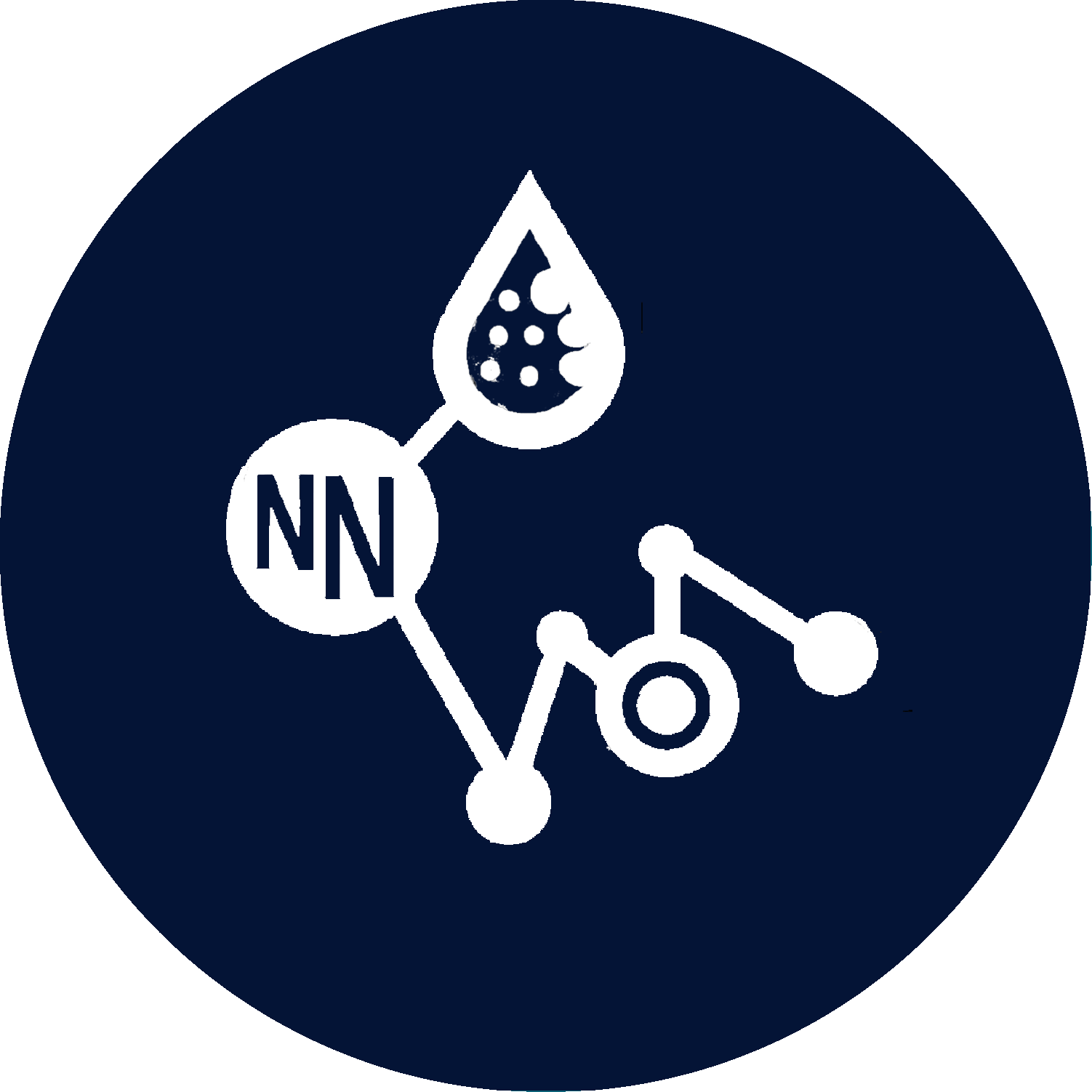Science Behind Our Protocols
Micronutrient Basics
Overview
Micronutrients are essential nutrients that are required by the body in small amounts to function properly. They include vitamins, minerals, and trace elements, which play various essential roles in the body. As the name implies, this protocol aims to cover the basics and ensure you have no micronutrient deficiencies.
Compounds
Vitamin B1, B2, B3, B5, B6, B12, C, D3, E, K2, folate, biotin, iron, calcium, magnesium, zinc, chromium, molybdenum, manganese, iodine, copper, selenium
Impact on aging
Micronutrients are essential for numerous biological functions. Thus, avoiding any deficiency is thought to have a positive impact on all the hallmarks of aging.
Science
You might have come across articles that imply possible harm from taking multivitamins and mineral supplements. These articles are not based on scientific conclusions. To our knowledge, no randomized controlled trial has ever shown harm caused by micronutrient supplements.
A large randomized controlled trial showed a daily multivitamin reduces the risk of cancer by 11%. [1]
Randomized controlled trials for individual vitamins also exist. Vitamin D, for example, helps prevent acute respiratory tract infections. [2]
Optimal Omega
Overview
Omega-3 fatty acids are a type of polyunsaturated fat that is essential for human health. They are called “essential” because the body cannot produce them on its own and must get them from food or supplements. There are three main types of omega-3 fatty acids: eicosapentaenoic acid (EPA), docosahexaenoic acid (DHA), and alpha-linolenic acid (ALA). Omega-3 fatty acids are essential for maintaining good health and preventing chronic diseases. They are thought to have various health benefits, including improving heart health, reducing inflammation, and improving brain function, and thus are crucial for longevity.
The Omega-3 Index measures the amount of omega-3 fatty acids in red blood cells. Most adults in western nations have a low Omega 3 Index, and their intake of Omega-3 is insufficient. We make sure your blood Omega-3 Index is in the optimal range.
Compounds
A high quality, algea-based Omega 3 with a good ratio of DHA and EPA.
Science
A very large randomized controlled trial found it reduces the risk of a heart attack by 28%. [3]
A review of 17 large cohort studies showed an Omega 3 index above 8% is associated with a 17% lower all-cause mortality. [4]
Omega 3 improves brain development & structure and enhances neurocognitive functions. [5]
A randomized controlled trial that combined Omega 3, Vitamin D, and a simple exercise routine reduced cancer risk by 61%. The beautiful randomization of this trial shows how each of the three interventions contributes approximately the same to the risk reduction. [6]
NAD+ Booster
Overview
This protocol boosts NAD+ levels. NAD+ (nicotinamide adenine dinucleotide) is a vital molecule that plays a paramount role in energy production, as well as in regulating cell repair mechanisms. NAD+ steeply decreases with age leading to decreased energy production and reduced ability to repair cellular damage. By middle age, our NAD+ levels have plummeted to half that of our youth. This can result in the gradual deterioration we experience as we age. NAD+ levels can be boosted by supplementing the body with precursors such as NR (nicotinamide riboside) or NMN (nicotinamide mononucleotide). As NAD+ production also needs methyl groups, these precursors should further be supplemented with a methyl-donner such as TMG (trimethyl glycine).
Compounds
NR & TMG
Science
NAD+ is vital for your cell metabolism and DNA repair. Your NAD+ levels decline with age. NR can restore your NAD+ levels. [7] [8] [9]
TMG provides the methyl groups required when NR boosts NAD+ levels. [10] [11]
NR is associated with better recovery from exercise, stress, and illness. [9] [12]
Glutathione Booster
Overview
This protocol supports Glutathione production to maintain youthful levels. Glutathione is a powerful antioxidant our body produces, and it decreases with age. To maintain glutathione production, the body needs enough precursors such as glycine and cysteine.
Compounds
Glycine (& Cysteine coming soon)
Science
Glutathione is an antioxidant produced by the body. Your Glutathione levels go down with age. Taking precursors such as Glycine and Cysteine may restore your Glutathione to youthful levels. [13] [14]
Combined Metabolic Activators (CMA) such as Glycine can accelerate recovery in illnesses such as mild-to-moderate COVID-19. [11]
Glycine is one of very few compounds that increased lifespan in the Interventions Testing Program (the most rigorous longevity compounds testing program done with mice). [15]
NRF2 Activator
Overview
This protocol activates NRF2. NRF2 (nuclear factor erythroid 2-related factor 2) is a powerful transcription factor (a protein that turns genes on and off) that increases the expression of genes that encode for proteins which protect cells from oxidative stress and which are involved in inflammation, cell proliferation, and cell death. Certain compounds, such as sulforaphane and curcumin, can activate NRF2.
Compounds
Glucoraphanin (a sulforaphane precursor) & active myrosinase (enzyme to convert glucoraphanin into sulforaphane).
Science
The NRF2 mechanism regulates many protective genes and pathways. NRF2-dependent antioxidant response diminishes with age. Sulforaphane is the most potent dietary NRF2 activator (found in cruciferous vegetables such as broccoli). [16]
It is believed to be the principal reason for the cancer-protective effect of cruciferous vegetables. [17]
Sulforaphane intake reduces chronic inflammation, a main cause of aging (inflammaging). [18]
References
-
Multivitamins in the prevention of cancer in men: the Physicians'
Health Study II randomized controlled trial
JAMA. 2014 Aug 6;312(5):560 -
Vitamin D supplementation to prevent acute respiratory
tract infections: systematic review and meta-analysis of individual participant data
BMJ. 2017; 356: i6583 -
Vitamin D, Marine n-3 Fatty Acids, and Primary Prevention of
Cardiovascular Disease Current Evidence
Circ Res. 2020 Jan 3;126(1):112-128 -
Blood n-3 fatty acid levels and total and cause-specific
mortality from 17 prospective studies
Nature Communications volume 12, Article number: 2329 (2021) -
Brain Health across the Lifespan: A Systematic Review on
the Role of Omega-3 Fatty Acid Supplements
Nutrients. 2018 Aug; 10(8): 1094 -
Combined Vitamin D, Omega-3 Fatty Acids,
and a Simple Home Exercise Program May Reduce Cancer Risk Among Active Adults Aged 70 and Older: A Randomized Clinical
Trial
Front. Aging 3, 25 April 2022 -
Chronic nicotinamide riboside supplementation is well-tolerated and
elevates NAD+ in healthy middle-aged and older adults
Nat Commun. 2018 Mar 29;9(1):1286 -
The NADPARK study: A randomized phase I trial of nicotinamide
riboside supplementation in Parkinson’s disease
Cell Metabolism 34, 396–407, March 1, 2022 -
Safety and Metabolism of Long-term Administration of
NIAGEN (Nicotinamide Riboside Chloride) in a Randomized, Double-Blind, Placebo-controlled Clinical Trial of Healthy
Overweight Adults
Sci Rep. 2019; 9: 9772 -
Nicotinamide riboside supplementation alters body composition and
skeletal muscle acetylcarnitine concentrations in healthy obese humans
Am J Clin Nutr 2020;112:413–426 -
Combined Metabolic Activators Accelerates Recovery in Mild-to-Moderate
COVID-19
Adv. Sci.2021,8, 2101222 -
Betaine supplementation decreases plasma homocysteine in
healthy adult participants: a meta-analysis
J Chiropr Med. 2013 Mar; 12(1): 20–25 -
Redox analysis of human plasma allows separation of pro-oxidant
events of aging from decline in antioxidant defenses
-
Glycine and N-acetylcysteine (GlyNAC) supplementation in older
adults improves glutathione deficiency, oxidative stress, mitochondrial dysfunction, inflammation, insulin resistance,
endothelial dysfunction, genotoxicity, muscle strength, and cognition: Results of a pilot clinical trial
Clin Transl Med. 2021 Mar;11(3):e372 -
Glycine supplementation extends lifespan of male and female mice
Aging Cell. 2019 Jun;18(3):e12953 -
Sulforaphane: Its “Coming of Age” as a Clinically
Relevant Nutraceutical in the Prevention and Treatment of Chronic Disease
Oxid Med Cell Longev. 2019; 2019: 2716870 -
Cruciferous vegetable intake is inversely associated with lung
cancer risk among smokers: a case-control study
BMC Cancer. 2010 Apr 27;10:162 -
Effects of broccoli sprout with high
sulforaphane concentration on inflammatory markers in type 2 diabetic patients: A randomized double-blind
placebo-controlled clinical trial
Journal of Functional Foods, Volume 4, Issue 4, October 2012, Pages 837-841







